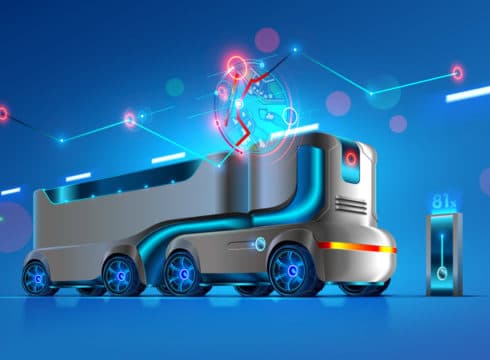The govt had earlier proposed an outlay of INR 5,500 for FAME-II
It plans on setting up 2,700 charging stations in the country
Govt will offer an upfront incentive on the purchase of EVs
Inc42 Daily Brief
Stay Ahead With Daily News & Analysis on India’s Tech & Startup Economy
Finally, the country’s electric vehicles industry and technology companies can look to produce more pollution-free vehicles — the much-awaited second phase of EV policy, called Faster Adoption and Manufacturing of Electric Vehicles in India or FAME II, has been approved by the Indian government with an outlay of INR 10,000 Cr ($1.4 Bn) to be invested over a period of three years.
The FAME II scheme proposes to support 10 lakh two-wheelers, 5 lakh three-wheelers, 55K four-wheelers, and 7K buses, that has lithium-ion batteries or newer technology batteries fitted on it —along with setting up of 2,700 charging stations, with availability of at least one charging station in a grid of 3 km x 3 km, the government statement said.
This scheme is the second phase of the present scheme, FAME India I, which was launched on April 1, 2015, with an outlay of INR 895 Cr ($126.2 Mn).
As part of the scheme, the government will offer an upfront incentive on the purchase of EVs. With the emphasis on electrification of public transportation, including shared transport, FAME II has envisaged benefits, as follows:
- Demand Incentives on operational expenditure mode for electric buses will be delivered through state STUs
- Incentives to electric 3-and 4-wheelers to be given only for public transport purposes
- In the electric 2-wheeler segment, the focus will be on private vehicles
- Setting up of EV charging stations in metros, other million-plus cities, smart cities, hilly states, including major highways connecting major city clusters
- Major highways will have EV charging stations on both sides of the road at an interval of about 25 km each
The proposed FAME India scheme II was earlier deferred for an indefinite period as the policy implementing body Niti Aayog and other ministries were reportedly facing a tough time to build consensus regarding the future roadmap. It was later speculated to be announced in September, last year.
A Great Initiative But Keep Hybrid Vehicles Away From Fame II, Say Startups
Notably, an inter-ministerial panel which finalised the roadmap for FAME-II had envisaged an outlay of INR 5,500 Cr. On Monday (February 25), the expenditure for FAME II was reviewed in the finance committee. The startup industry has responded well to the government’s initiative on FAME-II.
“Increased budget allocation from INR 5.5K Cr to 10K Cr is symbolic of electric mobility gaining momentum in India. It as a step towards curbing the influx of sub-optimal performance vehicles,” Ravneet Phokela of a Bengaluru-based EV startup, Ather Energy, said.
The startup is of the view that all OEMs should be offered incentives in setting up a charging network to simplify the requirements of a station and the process of installation and operation.
“The government has also encouraged commercial as well as individual sale. We believe that the private sector needs to play an equally important role to improve the performance of such vehicles,” Shreyas Shibulal, founder of Micelio, a venture capital company that focuses on seed-stage EV startups, said.
According to an automobile lobby group, Society of Indian Automobile Manufacturers (SIAM), its president Rajan Wadhera said that more details on the scheme are expected to be announced.
The government is also mulling to incentivise hybrid vehicles along with electric vehicles. This type of vehicle uses other fuel alternatives, besides petrol and diesel, to such as compressed natural gas (CNG).
“We are not supportive of the decision to bring hybrid vehicles in scope of FAME-II. We believe taking a bold step to bypass hybrids would have been better for the EV industry in the long run,” Phokela said.
According to government’s own record, under the FAME scheme, 266,815 EVs have been sold so far, saving 52,514 litres of fuel per day, and reducing 114,497 ton of carbon dioxide.
{{#name}}{{name}}{{/name}}{{^name}}-{{/name}}
{{#description}}{{description}}...{{/description}}{{^description}}-{{/description}}
Note: We at Inc42 take our ethics very seriously. More information about it can be found here.


